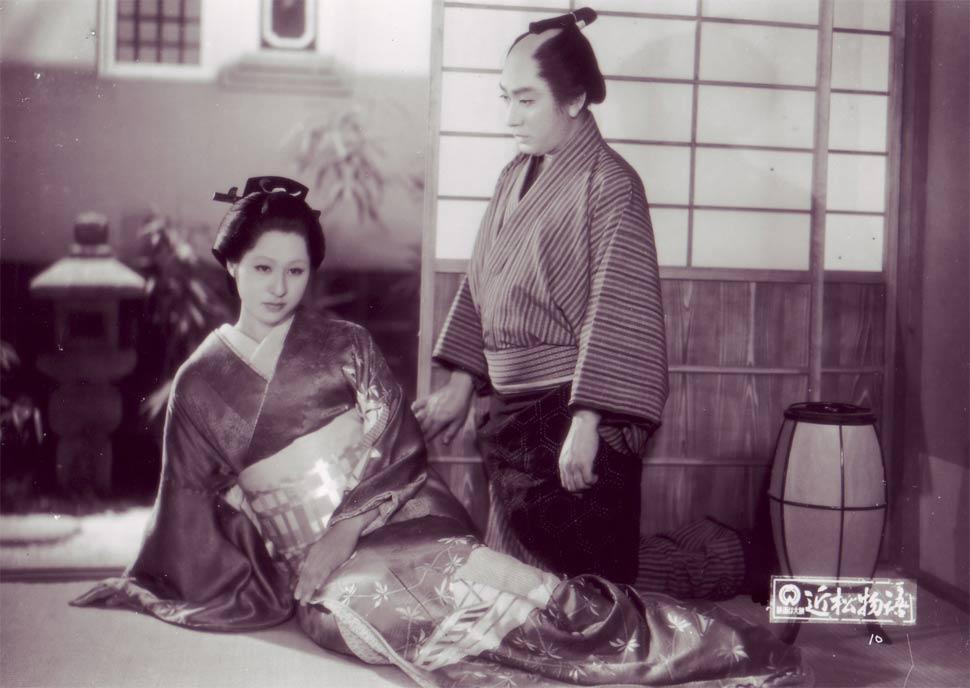Giappone (1954) / 102’
language Japanese
from the repertory bunraku tale of puppet Daikyoji Sekireki / Koi Hakke Hashiragoyomi
by Monzaemon Chikamatsu
cast Kazuo Hasegawa, Kyoko Kagawa, Yoko Minamida, Eitaro Shindo
screenplay Yoshikata Yoda
cinematographer Kazuo Miyagawa
editor Kanji Sugawara
production designer Hiroshi Mizutani
costume designer Natsu Ito
music Fumio Hayasaka
sound Iwao Otani
restoration curated by Kadokawa Corporation The Film Foundation
with the cooperation of The Japan Foundation
film laboratory Cineric Audio Mechanics


